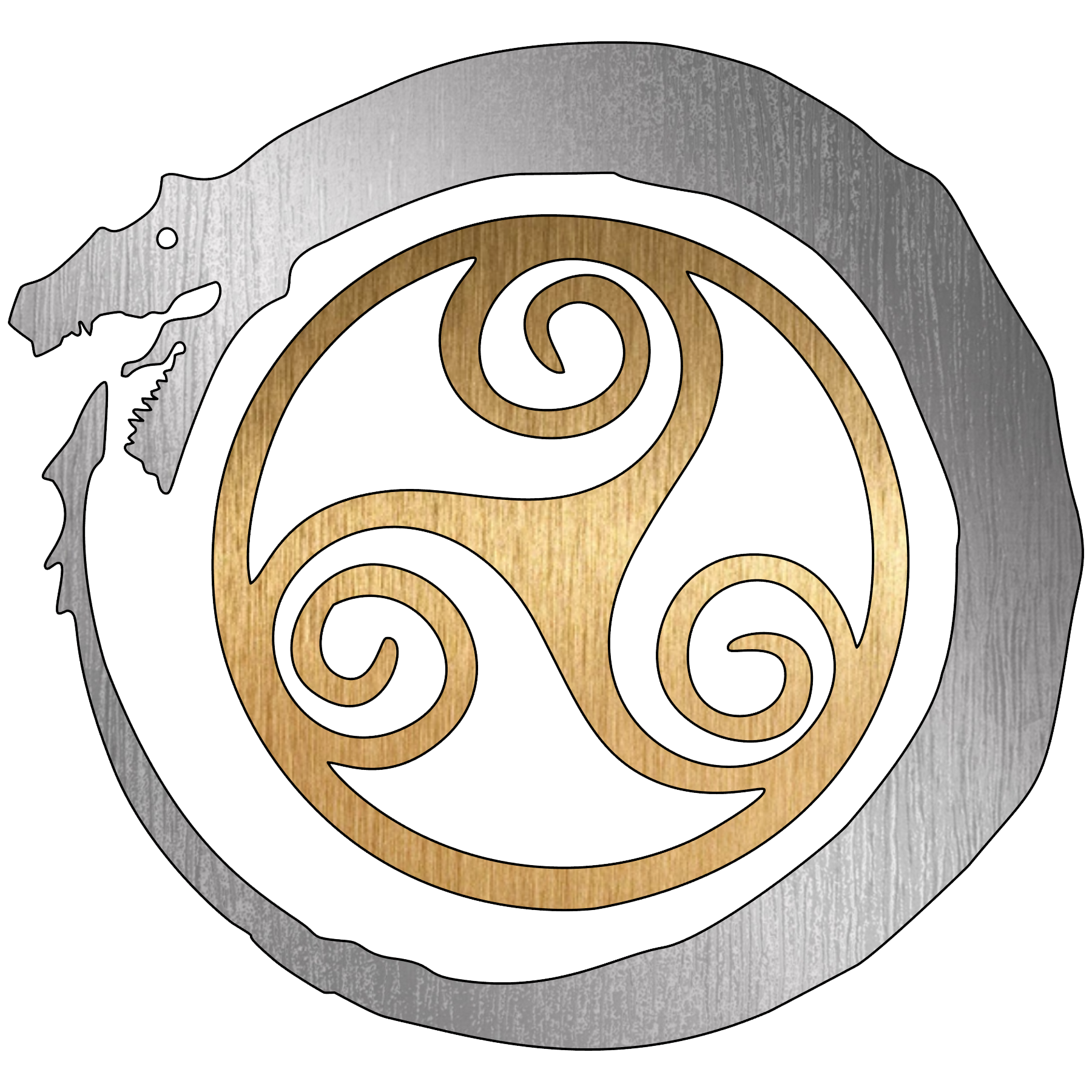The words “Heathen” and “Asatru” today refer to the modern revival of the old Pagan Norse/Germanic religion. The main difference between these two words is that Asatru refers to a specific set of beliefs in this group – while Heathen is a broader term referring to all Neo-Pagans who follow a Germanic/Norse pantheon of Gods and customs.
Asatru specifically is a modern Icelandic compound of the words Áss (which refers to the Aesir Gods) and trú (which literally means faith). Asatru translates into a faith in the Aesir Gods. (Vanatru has the same roots and refers to the worship of the Vanir). If you are curious about the difference between these two groups, feel free to do research. But today I want to talk specifically about three different perspectives in the modern Asatru and Heathen community: Universalist, Folkish, and Tribalist. Universalism and Folkism are the main two perspectives, but Tribalism has been suggested as a sort of middle ground between the two.
Universalist:
Key Points:
- Open to all: The core tenet of Universalism is that anyone, regardless of their ethnicity or cultural background, can practice Asatru or Heathenry.
- Focus on Values and Understanding: Adherents emphasize living by the values of the religion, understanding the lore and traditions, and taking personal responsibility.
- Freedom and Inclusivity: Universalists believe this approach allows for greater personal choice and helps spread the religion to a wider audience.
Example:
A person of Japanese descent who studies the lore, lives by the Nine Noble Virtues, and participates in community rituals could be considered a Heathen under a Universalist view.
Counter-Arguments (from Folkish/Tribalist perspectives):
- Too Open-Ended: Some argue Universalism is too inclusive and dilutes the cultural and ancestral connections central to the religion.
- Lack of Criteria: Folkish and Tribalist Heathens often feel that more specific requirements (like ancestry or cultural ties) are needed to truly understand and practice Asatru.
Universalism prioritizes the individual’s commitment to the religion’s values and practices over their ethnic or cultural background. This approach offers a more inclusive and accessible path to Asatru, while facing critiques from those who believe in stronger ancestral and cultural connections.
Tribalist
Key Points:
- Middle Ground: Positions itself as a potential compromise between Universalist and Folkish perspectives.
- Cultural Adoption: Emphasizes the deep adoption and immersion into Norse culture, regardless of ancestry.
- Folkish Identity: Identifies as “Folkish” due to this emphasis on cultural immersion.
- Dual Paths to Membership:
- Descent: Individuals of Norse/Germanic ancestry are automatically considered part of the community.
- Adoption: Others can join through a process of adoption and oath-taking, demonstrating their commitment to the culture.
- Comparison to Judaism: Likens their approach to the Jewish model of birthright and conversion.
Potential implications/considerations:
- Defining Cultural Adoption: How deep and extensive must the cultural adoption be to satisfy the Tribalist criteria?
- Adoption Process: What does the adoption and oath-taking entail? How is commitment to the culture assessed?
- Community Dynamics: How does this model impact interactions between those who join by descent and those who join by adoption?
Tribalism offers a nuanced approach, acknowledging the importance of ancestry while also creating a pathway for dedicated individuals from other backgrounds to join the community. This perspective bridges the gap between inclusivity and cultural preservation. Tribalism presents an intriguing solution to the debate surrounding Asatru’s accessibility, but it also raises important questions about implementation and community dynamics.
Folkish:
Key Points:
- Ethnic Connection: Folkish Asatru emphasizes ancestral and cultural ties, believing Asatru should primarily be practiced by those of Northern European descent.
- Connection to Land and Ancestors: This approach centers on connecting practitioners to the landscapes, traditions, and ancestors of their heritage.
- Not White Supremacy: Folkish Asatruar argue that their focus on ethnic ties is not about racial superiority, but about honoring and preserving the unique traditions of their people.
- Comparison to Shinto: They often draw parallels to Shinto, highlighting it as an example of a respected ethnic religion.
Counter-Arguments (based on historical and mythological context):
- Non-Norse Participation: Critics point to historical and mythological instances where non-Norse individuals took part in Norse rituals or practices, suggesting a more inclusive tradition.
- Norse Adaptability: The Norsemen themselves adopted customs from other cultures when settling in new lands, challenging the idea of strict adherence to a single tradition.
- Religious Flexibility: Norse participation in other religions’ rituals (like prime-signing) indicates a degree of flexibility and adaptability within their beliefs.
The Folkish perspective centers on the deep connection between Asatru, its ancestral roots, and the people of Northern European descent. They advocate for preserving these traditions and cultural ties. However, critics raise historical and mythological examples to question the strictness of this approach and suggest a more inclusive past.
These points are all explained on Uppsala Online:
“Norsemen, when travelling afar, often took part in the religious rituals of the lands they traveled to, such as is found in the example of prime-signing, where travelling heathens took part in Christian ritual without renouncing their native gods. If the ancient heathens thought every bloodline had its own gods that should be stuck to exclusively, then why did they engage in this practice? Similarly Radbod the Frisian, an Asatru hero, was going to take baptism to honor his friends’ gods (until a Christian priest said something stupid).”
Awaken the North’s Universalist stance on Asatru aligns perfectly with the principles discussed earlier. Our belief that ALL may worship the Norse Gods embodies the core of Universalism, emphasizing inclusivity and open access to the religion regardless of background or ancestry.
This approach fosters a welcoming and diverse community where individuals from all walks of life can connect with and honor the Norse deities. It’s a beautiful testament to the enduring power of these ancient traditions and their ability to resonate with people across cultures and generations.

No responses yet